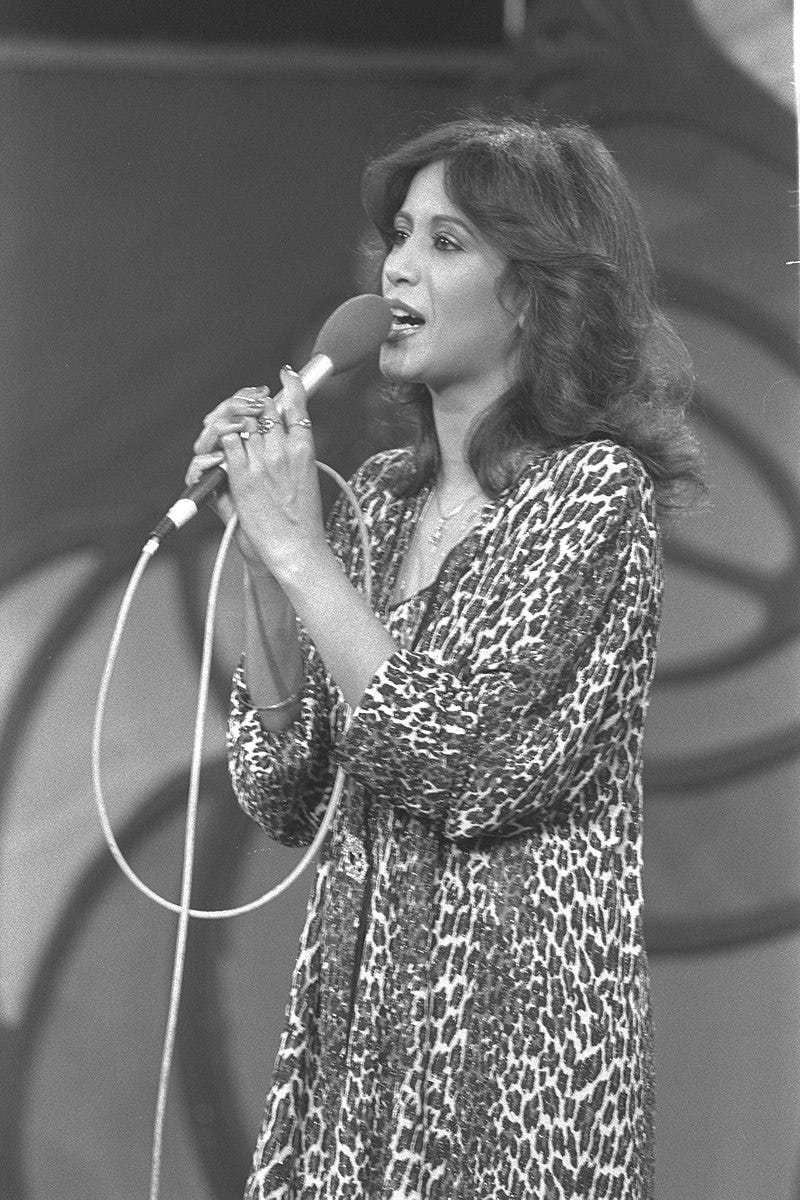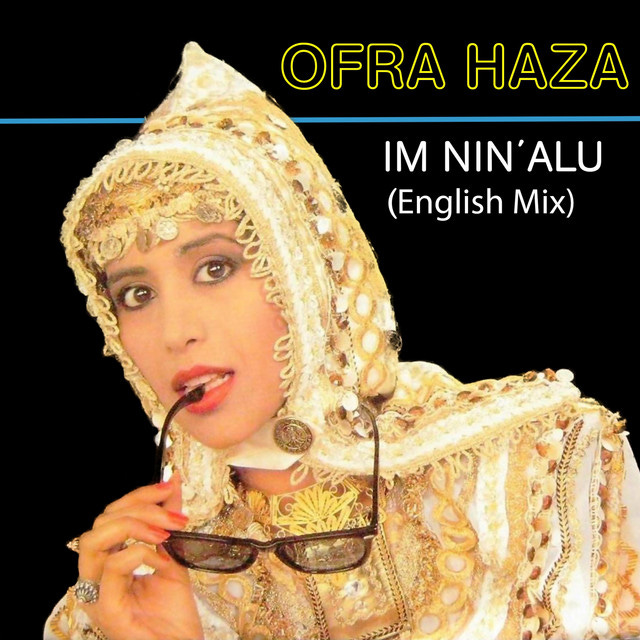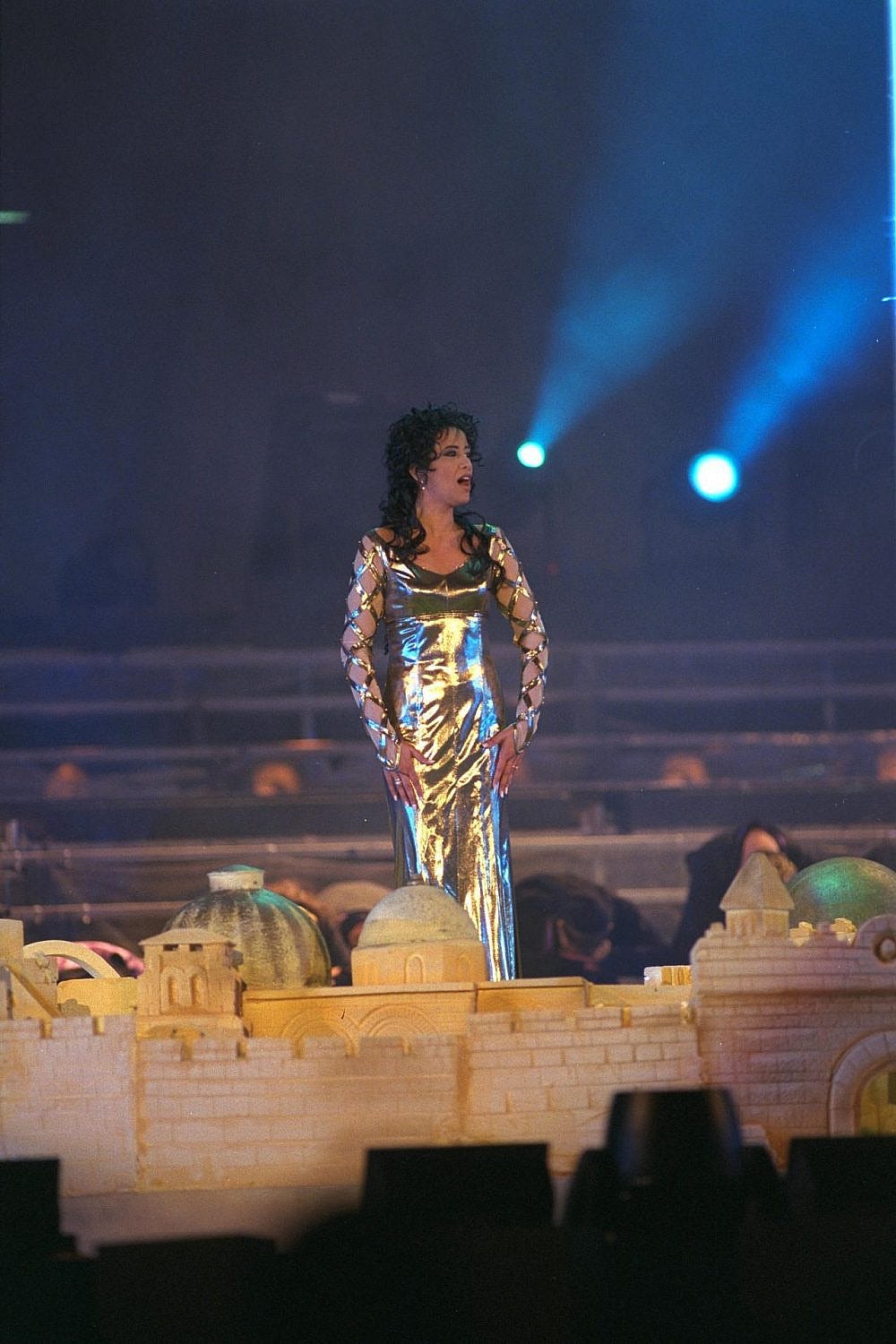The Evolution of Ofra Haza From Israeli Star to Global Music Icon
A Story Unfolding Across Timelines.
Recap from Previous Episodes
In this series, Kevin Alexander and I explore Israeli music culture, with a special focus on Ofra Haza. Together, we follow the music lane into Israeli culture, inviting you to join our conversations and see where this journey takes us.
Current Time.
Liat Portal: In the previous episode, we talked about the mainstream's rejection of Mizrahi music. However, despite their recoil, this genre gained popularity among the public to the point that it couldn't be ignored anymore. Ofra Haza delved into her cultural roots and recorded albums in Yemen, which made her a world music icon and an ambassador who bridged East and West like no other artist had ever done before.
The success of Haza's album "Yemenite Songs" propelled her to international success and established her as a highly in-demand artist. Her growing status boosted demand for her performances, and she was interviewed on popular talk shows and in renowned newspapers. To advance her international career, she recorded an entire album in French titled Aime Moi ("Love Me"), which included French renditions of successful Hebrew songs.
Successful songs reflect people’s realities, express universal emotions, or tell stories that resonate deeply with their audiences. When a song succeeds in one language or culture, it has the potential to succeed in others, as its core message and emotions can connect with people from different backgrounds. I hope someone takes up the challenge to create their own rendition of Ofra’s songs I translated. Perhaps these songs will bring musicians the breakthrough they need early in their careers.
A Turning Point
While expanding her career into Europe, Haza did not neglect her work in Israel. She continued performing and recording albums. However, 1987 marked a pivotal year for Haza. She survived a plane crash while returning to Tel Aviv from a concert in southern Israel. That same year, she sued two American rappers, Eric B. & Rakim, who had sampled her voice from "Im Nin'alu" in their song “Paid in Full.” The success of their track inspired her manager, Bezalel Aloni, to record a new version of "Im Nin'alu" that included English lyrics.
Bezalel Aloni's artistic strategy was brilliant, leading to a series of outstanding achievements. "Im Nin'alu topped the German charts for nine consecutive weeks. The single sold over three million copies, earning Haza the title of Germany's Singer of the Year. Surprisingly, the rappers' sampling of her voice for their version of "Im Nin'alu" boosted Haza's sales outside Israel and took her international fame to new heights.
Haza became famous not only in Europe and America but also in the Far East and Arab countries like Yemen. She released the album Shaday, which featured hits like "Galbi" and "Im Nin'alu." This was followed by her album Desert Wind, which sold nearly half a million copies, an almost unimaginable figure for the Israeli music industry, given its relatively small size compared to the global market. Haza represented Israel with "Im Nin'alu" at the Tokyo International Music Festival in Japan, where she took home first place. Around the same time, she respectfully declined an invitation from the Vatican to sing for Pope John Paul II due to her religious beliefs.
International Recognition
Experts outside Israel argued that Haza was the first artist to introduce ethnic music fused with Western styles to the global stage, making her a pioneer of the world music genre. In 1990, she was recognized in Monte Carlo as the "Best-Selling Israeli Artist of All Time." That same year, she performed at the Montreux Jazz Festival in Switzerland, and her successful performance was later released as a record. She also participated three times in the prestigious Sanremo Festival in Italy. Remarkably, Haza even turned down an offer from Michael Jackson to join his global tour. Kevin, can you imagine saying no to Michael Jackson in 1990, when he was one of the most popular artists in the world, at the peak of his career?
Kevin Alexander: Lol. Absolutely not.
Liat Portal: In 1992, Haza collaborated on the "Temple of Love 1992" remix by the band Sisters of Mercy, adding her Middle Eastern vocal style to the hard rock track. In 1993, she became the first Israeli nominee for a Grammy Award in the World Music category, thanks to her successful album Kirya, which topped the Billboard charts for weeks. The album featured a poignant song mourning the plight of women in a chauvinistic and conservative world (Daw Da Hiya) and included two traditional Yemeni wedding songs.
Kevin, Haza was singing about the harsh realities women faced in a chauvinistic and conservative world back in 1992. How does that resonate with you today? How do you think the situation for women in Arab countries has changed by 2024? Have women’s rights improved or worsened? Are they even allowed to listen to music in some places? In August 2024, the Taliban enacted a law in Afghanistan prohibiting women wearing hijabs from speaking or singing in public.
Kevin Alexander: I'm on the outside looking in, but from everything I've seen, conditions for women have only regressed.
Liat Portal: Unfortunately, you are right.
During that time, Haza collaborated with major artists like Iggy Pop, Paul Anka, Sisters of Mercy, and Paula Abdul. She also appeared on prestigious talk shows outside of Israel and performed theme songs for films such as Wild Orchid, The Governess, and Queen Margot, the last in collaboration with Yugoslav musician Goran Bregovic.
A Dance with Fate, Round Two
In 1994, Haza recorded several songs for her new international album, Queen in Exile. The album's first and only single, "Mata Hari," became a vibrant ethnic dance hit. She also collaborated with Izhar Ashdot, whose work played a significant role in elevating her to international stardom.
Kevin, guess what else happened to her in 1994? She survived a lightning strike on an airplane while returning to Israel from London. It’s as if death kept chasing her, but she managed to evade it once again. Do you think her luck will continue to hold? Stay tuned.
Kevin Alexander: Wait, what?! Say more, please. Commercial flight? Private jet? Did they need to divert? Lightning striking an aircraft is more common than people would like to think (or know about), and there are systems in place to dissipate the charge, but that's still some serious business where you're at 30.000 ft.
Liat Portal: It was a commercial flight from London to Israel. What are the odds, ha?
That same year, she performed at the Nobel Peace Prize ceremony in Oslo, Norway, honoring Yitzhak Rabin, Shimon Peres, and Yasser Arafat. It was a significant honor for her and for Israel, symbolizing what many believed was the beginning of a new era of peace. Or, as Shimon Peres phrased it, “A New Middle East.” However, this hope was cut short with the assassination of Yitzhak Rabin in 1995.
Following Rabin's assassination, she performed "Along the Sea" at his memorial ceremony in Tel Aviv. She blended it with her song "Kol Haneshama," meaning "The Voice of the Soul" in Hebrew. This performance remains one of the most memorable in Israeli culture to this day.
Let’s listen to this unforgettable performance from Yitzhak Rabin’s memorial ceremony at Kings of Israel Square, known in Hebrew as Kikar Malchei Yisrael, in front of the Tel Aviv City Hall. This is the same square where Rabin was assassinated, after which its name was changed to Rabin Square. I've translated the song into English for you.
"La'Orkh HaYam" Along the Sea
Lyrics and music by: Ayala Asherov
Tell me how to stop the tears,
Tell me where there's another world to live.
Tell me why there's no truth, only illusions,
So why try and keep going, only to cry again?
Along the sea,
There are no waves, there's a world
Shattered into pieces on the pier.
Tell me how to stop the tears,
Tell me where there's another world to live.
When people run toward hell as if toward the sea,
I'll run into the fire if they'll come back from there.
Along the sea,
There are no waves, just a world
Shattered into pieces on the pier.
Tell me how you live with death,
Hiding the tears every night - tell me, until when?
The fire that calls me isn't really there,
And the one who disappeared - will he return, or is he already gone?
Along the sea,
There are no waves, there's a world
Shattered into pieces on the pier.
Ofra Haza, "La'Orkh HaYam" Along the Sea - A Memorial Ceremony for Yitzhak Rabin 1995
In 1997, Haza released her final album, Ofra Haza, produced by Frank Peterson, who also worked with the band Enigma. Most of the album was recorded in Hamburg, Germany, and at Abbey Road Studios in London. Highlights include "Show Me," "Give Me a Sign," and an amazing cover of Carole King's "You've Got a Friend."
Haza always integrated her Jewish and Yemenite heritage into her international albums. She sang about Jewish history, most notably in the lament "Trains of No Return," a tribute to Jews murdered in the Holocaust, featured on the album Kirya. Another powerful piece, "Mm'mma," from Desert Wind, reflected the hardships faced by Yemenite and Ethiopian Jews on their journeys to Israel.
In 1998, Haza performed at The Jubilee Bells, the central ceremony marking Israel's 50th anniversary. There, she renewed Naomi Shemer's iconic song "Jerusalem of Gold."
That same year, she took part in the Avoda Ivrit project, meaning "Hebrew work" in Hebrew, recording a cover of Boaz Sharabi's song "Latet" ("To Give"). She also played a major role in DreamWorks' animated film The Prince of Egypt, singing "Deliver Us" in 17 languages. The film was a hit worldwide, giving her even more global recognition.
In 1998, she appeared in the film Absolute Justice, which dealt with the Yemenite Children Affair, and performed the song "B'Mizrach Shelanu" ("In Our East") written by Ehud Manor and composed by Boaz Sharabi. That same year, she collaborated with the British band The Black Dog on the "Babylon" song based on Psalm 137.
In 1999, Haza dubbed characters in the Hebrew version of the animated film The King and I and performed five songs for it. That year, she also recorded songs for a compilation album, The Tune of the Heart, which was released after she was no longer with us.
Let’s wrap up this episode by remembering Ofra Haza’s unforgettable performance at the 1994 Nobel Peace Prize Ceremony, honoring Yitzhak Rabin and Shimon Peres.
A big thank you to everyone who joined us for every episode! Don’t miss our next and final episode, where we dive into what happened when she took the wrong turn and changed the course of her life.
OFRA HAZA - Paint Box at the 1994 Nobel Peace Prize Ceremony
Paint Box
Lyrics: Tali Shurek, Music: Kobi Oshrat
I had a paint box
Each color glowing with delight
I had a paint box with colors
Warm and cool and bright
I had a paint box
Each color glowing with delight
I had a paint box with colors
Warm and cool and bright
I had no Red
I had no Red for wounds and blood
I had no Black for an orphaned child
I had no White
I had no White for the face of the dead
I had no Yellow for burning sand
I had a paint box
Each color glowing with delight
I had a paint box with colors
Warm and cool and bright
I had Orange
I had Orange for joy and life
I had Green
Green for buds and blooms
I had Blue
I had Blue for a clear bright sky
I had Pink
Pink for dreams and rest
I had a paint box
Each color glowing with delight
I had a paint box with colors
Warm and cool and bright
I had a paint box
Each color glowing with delight
I sat down
I sat down and painted Peace / Salaam / Shalom
שלום
To read the series of stories about Ofra Haza, click the links:
Singing Through History: Ofra Haza’s Timeless Legacy in Israeli Music
Ofra Haza Bridging Cultures Through Music and Breaking Global Barriers
The Evolution of Ofra Haza From Israeli Star to Global Music Icon (You Are Here)
Breaking Barriers but Bound by Shame in the Untold Story of Ofra Haza
Please fasten your seatbelts and subscribe.
Unlock my potential to write the next great chapter in the most extraordinary story ever told. Your support would make a big difference in taking this journey to the next level.
Follow me on My Journey to Infinity to find out. It will be more beautiful than you could ever imagine.
Liat
In this journey, I weave together episodes from my life with the rich tapestry of Israeli culture through music, food, arts, entrepreneurship, and more. I write over the weekends and evenings and publish these episodes as they unfold, almost like a live performance.
Each episode is part of a set focused on a specific topic, though sometimes I release standalone episodes. A set is released over several days to make it easier for you to read during your busy workday. If one episode catches your attention, make sure to read the entire set to get the whole picture. Although these episodes are released in sets, you can read the entire newsletter from the beginning, as it flows smoothly, like music to your ears - or, in this case, your eyes.









